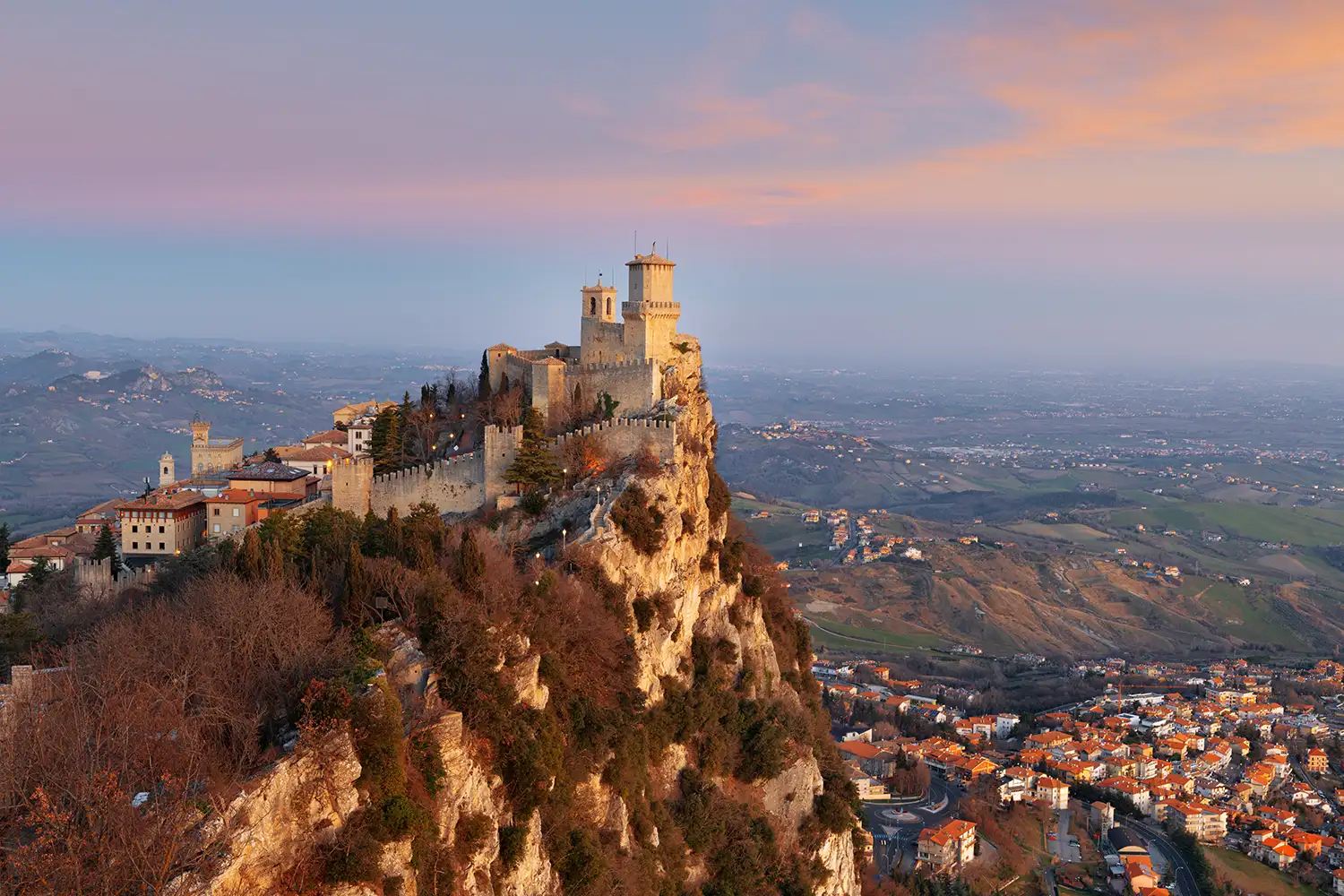The world we live in today is a patchwork of nations, each with its unique history, culture, and heritage. Though the landscape of the world map has undergone massive changes throughout the centuries, some countries have managed to survive, adapt, and thrive through the tumult of time, retaining their independence and cultural identity. These are the oldest countries alive, and their histories abound with intriguing tales of survival, survival, and growth. We go on to list the seven oldest countries to still exist today.
1.San Marino – 301 AD
San Marino, a landlocked country flanked by Italy in all four sides, is largely believed to be the world’s oldest living republic. It is said that in 301 AD, it was founded by Saint Marinus, a Christian stonemason who, being persecuted for his religion, went into exile and formed a community on Mount Titano. The centuries passed and San Marino survived all the political convulsions going around it and stayed independent owing to its geography and diplomatic immunities.
San Marino is peculiar in the sense that it has been able to maintain its republican system of government from its inception until date. It is a system whereby two Captains Regent are elected every six months to act as heads of state. Despite its small size, measuring just 61 square kilometers, San Marino has played an important role in European history. San Marino has never lost its independence, not even during the Napoleonic Wars when it was occupied by France but regained its autonomy within a short time of Napoleon’s fall.
2.Japan – Founded in 660 BC
Japan has a history traced back thousands of years and had been officially established in 660 BC, or at least legend has it. This was the ascending date of Japan’s first emperor, Emperor Jimmu, upon the throne hence beginning a reign that has prevailed up to date. This consequently makes Japan the oldest continuous hereditary monarchy in the world. Despite many changes in the country-from feudal rule to imperial dominance-Japan was still able to maintain its cultural identity throughout those thousands of years.
The Chrysanthemum Throne of Japan has faced numerous wars, foreign invasions, and even dramatic political changes in the country. These are some major historical events such as the period of samurais, Meiji Restoration, and Japanese expansion during World War II. Currently, Japan is a modern, advanced technology nation with an old civilization balanced by advanced innovation, an interesting example of a nation which managed to grow and stay stuck to its history.
3.China – Unification in 221 BC
China is one of the oldest continuous civilizations in the world, with a history dating back over 5,000 years. The country officially unified in 221 BC under Emperor Qin Shi Huang, the first emperor of the Qin Dynasty. This momentous event brought together the various warring states into one centralized empire, marking the beginning of imperial China.
Over the centuries that followed, there were great rising and falling empires-the Han, the Tang, the Song, the Ming-and each of these periods contributed profoundly to China’s cultural, technological, and philosophical inheritance. Despite the divisions and foreign invasions, revolutions that shook the land-the fall of the Qing Dynasty in 1911 and the emergence of the People’s Republic of China in 1949-since the people have kept and continued the continuum of the age-old culture dating back thousands of years. At present, the country stands at the helm as one of the world’s great powers, its ancient traditions existing in perfect conjunction with modern advancement.
4.Egypt- Civilization Since 3100 BC
History Egypt has one of the most intriguing histories in the world. Its civilization dates back to about 3100 BC when King Narmer, also known as Menes, united Upper and Lower Egypt. The ancient Egyptians established one of the oldest and most lasting cultures, renowned for their accomplishments in architecture, medicine, art, and religion. The construction of pyramids, hieroglyphic writing, and development of such an advanced administration are just some examples of what the Egyptians wonderfully added to the history of humankind.
Pharaohs were ruling Egypt such as Ramses II and Cleopatra while foreigners were holding rule over Egyptians including Greeks, Romans, and Arabs. Yet, Egypt has remained an integral cultural unit of history with origins going back from the ancient past to the current Islamic culture. In many ways, modern Egypt is vastly different but, as part of the entity of the region, it remains crucial in the region of the Middle East and North Africa and will continue on to carry forward a legacy that creates one of the world’s oldest and most profound civilizations.
5.Greece – Founded in 8th Century BC
The history of Greece goes way back to the 8th century BC when ancient Greeks began their city-states. The most renowned city-states at that time include Athens, Sparta, and Corinth. Those city-states birthed all these concepts in democracy, philosophy, and arts which have since come to form the heart of Western thought and political theory. It is during the period of great thinkers such as Socrates, Plato, and Aristotle that laid a foundation for much of Western thought.
Greece’s history is filled with the ascendancy and decline of mighty city-states, the conquests under Alexander the Great, and through Alexander’s great empire, Greek culture permeated the Mediterranean. Conquered in turn by the Romans, the Byzantine Empire, and finally the Ottoman Empire, Greece won her independence during the 19th century. Modern Greece takes on all the baggage of its ancient history, and its culture, language, and art remain distinctly classical.
6.Iran (Persia) – Civilization Since 550 BC
Iran is the second oldest continuous civilization in the world, and its history is at least 550 BC older than that date when the Achaemenid Empire was founded by Cyrus the Great. With that conquest, Persian became one of the biggest empires in the world. This stretch was from Indus Valley to Greece, north side as Caucasus and south as Egypt. Of course, Persians also became very significant for the whole Middle Eastern world in its entirety due to its culture and all the other attributes such as art, literature, and philosophy.
Despite periods of invasion and foreign rule, including the Arab conquest in the 7th century, Iran has retained a strong sense of national identity, deeply intertwined with its Persian heritage. The country has witnessed the rise and fall of several dynasties, including the Safavids and the Qajars, and underwent a revolution in the 20th century that led to the establishment of the Islamic Republic. Iran of today is a strong state with such a deeply rich history of culture, deep into millennia.
7.France-Set in the 5th century AD
The modern nation-state of France was founded in the 5th century AD when the Germanic tribe known as the Franks established the Kingdom of the Franks after the fall of the Roman Empire. The first king of the Franks, Clovis I, united much of present-day France and converted to Christianity, which would help shape the country’s identity for centuries to come. History also involves other eras, including the period of mighty kings, the French Revolution, and its crucial role in the two World Wars.
It has since 1789 due to the occurrence of the French Revolution that the French Republic began and, despite such numerous changes in government, this country is still one of the most influential countries in Europe and the entire world. It has enormously influenced aspects of world history, for instance, culture, language, art, and philosophy. Modern France, too, is one of the influential countries in politics, economies, and culture in the whole world.
The world’s oldest continuously existing countries stand as testaments to the resilience of human civilization. Amid the ever-changing political, social, and cultural landscapes, some nations have successfully adapted to modern times while preserving their unique heritage. From the ancient civilizations of China and Egypt to the smallest republic of San Marino, each country carries a rich history that seamlessly blends with the present. Their stories offer a glimpse into our deep past and serve as a reminder that preserving history is essential as we navigate the challenges of the future. For more information, visit OutdoorKeeda.







